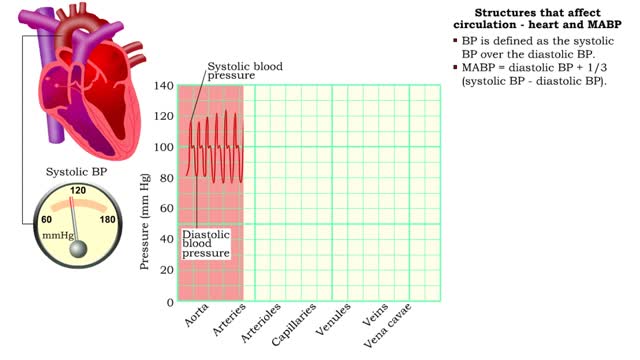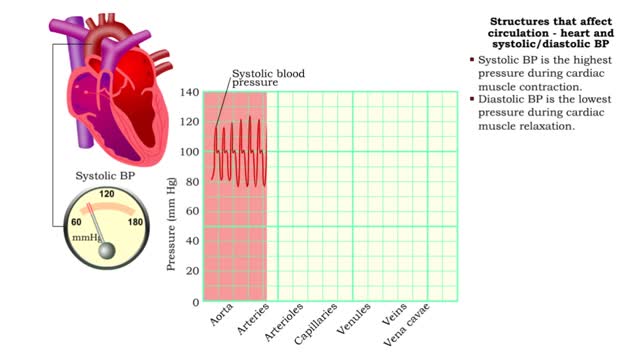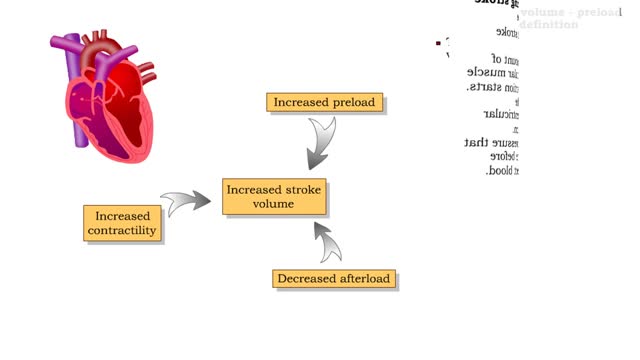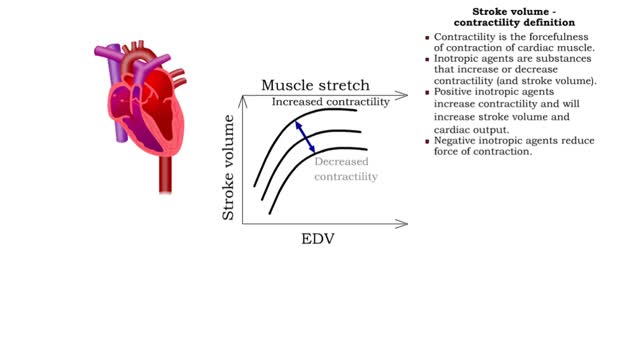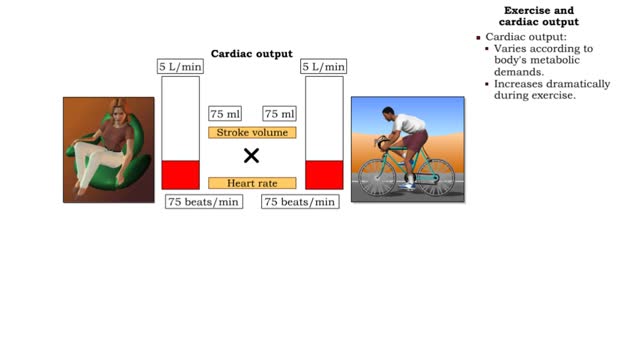Search Results
Results for: 'diastolic BP'
Structures that affect circulation - heart and MABP
By: HWC, Views: 10887
■ BP is defined as the systolic BP over the diastolic BP. ■ MABP = diastolic BP + 1/3 (systolic BP - diastolic BP). ■ MABP accounts for diastole lasting longer than systole; mean is not equidistant between the two pressures.
Structures that affect circulation - heart and systolic/diastolic BP
By: HWC, Views: 11294
• Heart generates blood pressure. • Arterioles produce resistance thereby regulating blood flow to tissues. • Veins store blood; kidneys regulate blood volume; both affect venous return and cardiac output. ■ Contractions of the ventricles determine blood pressure, which drives th...
Definitions of stroke volume, preload definition & Factors influencing stroke volume
By: HWC, Views: 11134
• Stroke volume is directly correlated with cardiac output-the greater the stroke volume the greater the cardiac output. • Stroke volume represents the difference in the amount of blood between: • the volume in the ventricles at the end of diastole (end-diastolic volume EDV); • the ...
By: Administrator, Views: 14386
How nurses check a patient's blood pressure. Blood Pressure The pressure exerted by the blood on the walls of the arteries. Higher (systolic) number: the pressure while the heart contracts. Lower (diastolic) number: the pressure when the heart relaxes between beats. Measured by a sphygmoma...
By: HWC, Views: 11299
Preload definition • Preload is the degree of stretch of cardiac muscles cells prior to contraction. • The amount of stretch is related to the end-diastolic volume[EDV]. • Increased return blood flow from the veins increases end-diastolic volume. Cardiac muscle sarcomeres stretch and ...
Exercise and cardiac output & Definition of stroke volume
By: HWC, Views: 11306
▪ Cardiac output: • Maintains blood flow throughout the body. • Measure of blood volume ejected from the heart over a given time. • Determined by multiplying heart rate by stroke volume (CO = SV x HR). • Heart rate: Number of beats/min. • Stroke volume: Amount of blood eject...
By: Administrator, Views: 14471
Pre-eclampsia (PE) is a disorder of pregnancy characterized by the onset of high blood pressure and often a significant amount of protein in the urine. When it arises, the condition begins after 20 weeks of pregnancy. In severe disease there may be red blood cell breakdown, a low blood platelet c...
Advertisement



